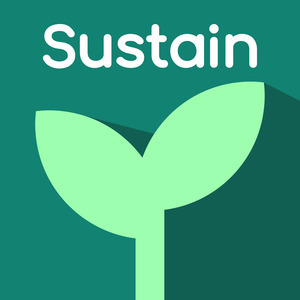Episode 178
Maintainer Month with Predrag Gruevski & Kingsley Mkpandiok
May 23rd, 2023
37 mins 15 secs
About this Episode
Guests
Predrag Gruevski | Kingsley Mkpandiok
Panelists
Richard Littauer | Eriol Fox
Show Notes
Hello and welcome to Sustain! The podcast where we talk about sustaining open source for the long haul. This is a special podcast and one of several in this series for Maintainer Month. We’re interviewing maintainers to ask them about their experience of open source and their experience of living as maintainers. We’re super excited to have two guests with us.
Our first guest is Predrag Gruevski, who’s the maintainer of two projects in the Rust ecosystem. Predrag discusses his role as a maintainer for these projects, and he shares his motivations for volunteering as a maintainer, the value of making an impact on the community, and the importance of mentorship.
Our next guest is Kingsley Mkpandiok, who’s a B2B B2C UX Designer, Open Source Design Advocate, and has contributed to projects like CHAOSS Africa and OSCAfrica Festival. Kingsley shares his journey as a UX designer contributing to open source projects in Nigeria, he discusses the challenges of onboarding designers, shares his approach to creating a welcoming environment and providing opportunities for designers to contribute beyond initial tasks. Download this episode now to hear much more!
Predrag:
[00:00:46] Predrag discusses his role as a maintainer of two open source projects in the Rust ecosystem: cargo-semver-checks and Trustfall.
[00:01:13] He explains that semantic versioning is more critical in Rust due to the language’s auto traits feature, and breaking changes in Rust can have serious consequences.
[00:03:15] Predrag talks about being a volunteer and how it provides an opportunity to make a significant impact on the community while benefiting from the value proposition.
[00:06:32] We hear how Predrag values helping early career individuals break into software engineering and finding competent individuals who outperform their peers.
[00:08:24] How does Predrag rule out people who aren’t competent yet? He explains how he’s looking for people who are outperforming their peers and outperforming their environment.
[00:09:55] Regarding onboarding maintainers, Predrag discusses marketing mentorship opportunities on GitHub issues and being open to collaborating with students or individuals interested in Rust open source tooling.
[00:11:15] Predrag acknowledges the possibility of experiencing burnout as a maintainer. He separates burnout from mentorship, noting that not everyone may be a good fit for his mentorship style. He values feedback and growth-oriented individuals and believes in honest conversations.
[00:12:56] Richard brings up value propositions and Predrag tells us he enjoys solving hard problems and finding efficient solutions. The question of value alignment comes up and Predrag clarifies that he sees himself as a curator of options for the project, providing a menu of potential directions for new maintainers to choose from.
[00:15:26] Predrag mentions that he plans to integrate cargo-semvr-checks into the Rust programming language cargo tool, which would further decentralize the project and make it a collective effort.
[00:17:09] Find out where you can follow Predrag and his blog on the web.
Kingsley:
[00:20:21] Our next guest, Kingsley tells us that he sees himself primarily as a designer rather than a maintainer. He shares his experience of joining CHAOSS Africa as his first open source contribution.
[00:23:31] Kingsley tells us it took him about two months to fully understand how to contribute to CHAOSS Africa, and he emphasizes the importance of designers being open to problem-solving and looking for issues to fix within the community.
[00:26:16] Regarding onboarding designers and creating a more inclusive environment, Kingsley shares his experience in CHAOSS Africa and a document he created.
[00:30:06] Kingsley shares that the one thing he didn’t expect about working in design was having to handle conflict resolution among design contributors.
[00:31:41] Eriol asks Kingsley about his vision for change in open source projects and culture to make design more inclusive. He expresses his desire to see more designers getting involved in open source projects, and he encourages designers to see themselves as problem solvers who can contribute to various aspects of open source.
[00:35:10] Find out where you can follow Kingsley on the web.
Quotes
Predrag:
[00:04:10] “There’s been multiple prior efforts to build semver-checks in Rust that have failed for maintainability reasons. They were harder to keep going.”
[00:05:28] “I felt that for a very small amount of effort, I could have a very large impact on the community.”
[00:07:01] “I’m one of those people that believes that number of years of experience is an extremely poor predictor of competence, whether in software or otherwise.”
[00:10:10] “I label issues as ‘e-mentor,’ so that means I’m willing to mentor someone to take over implementing this issue.”
[00:14:11] “I believe in laying out a menu and saying, hey, which of these ten different things, ten different directions of taking the project are you interested in working on?”
[00:16:54] “The project will have failed if twenty years from now I’m the person that has to make every single one of these decisions.”
Kingsley:
[00:24:58] “You can’t contribute to a project you don’t understand.”
[00:30:35] “One thing I didn’t expect [about working in design] is conflict resolution.”
[00:31:22] “I wish someone had told me about the need for conflict resolution skills and not just design.”
[00:34:57] “There’s no future in open source without design.”
Links
- SustainOSS
- SustainOSS Twitter
- SustainOSS Discourse
- podcast@sustainoss.org
- SustainOSS Mastodon
- Richard Littauer Twitter
- Eriol Fox Twitter
- Predrag Gruevski Twitter
- Predrag Gruevski Website
- Predrag’s Blog
- Predrag’s blog post-“Mediocrity can be a sign of excellence, and other stories”
- Trustfall-GitHub
- cargo-semver-checks
- Kingsley Mkpandiok LinkedIn
- Kingsley Mkpandiok Medium
- CHAOSS Africa
- CHAOSS blog post-“How can designers contribute to an open source project on GitHub?” by Kingsley Mkpandiok
- CHAOSS Weekly Newsletter
Credits
- Produced by Richard Littauer
- Edited by Paul M. Bahr at Peachtree Sound
- Show notes by DeAnn Bahr Peachtree Sound
